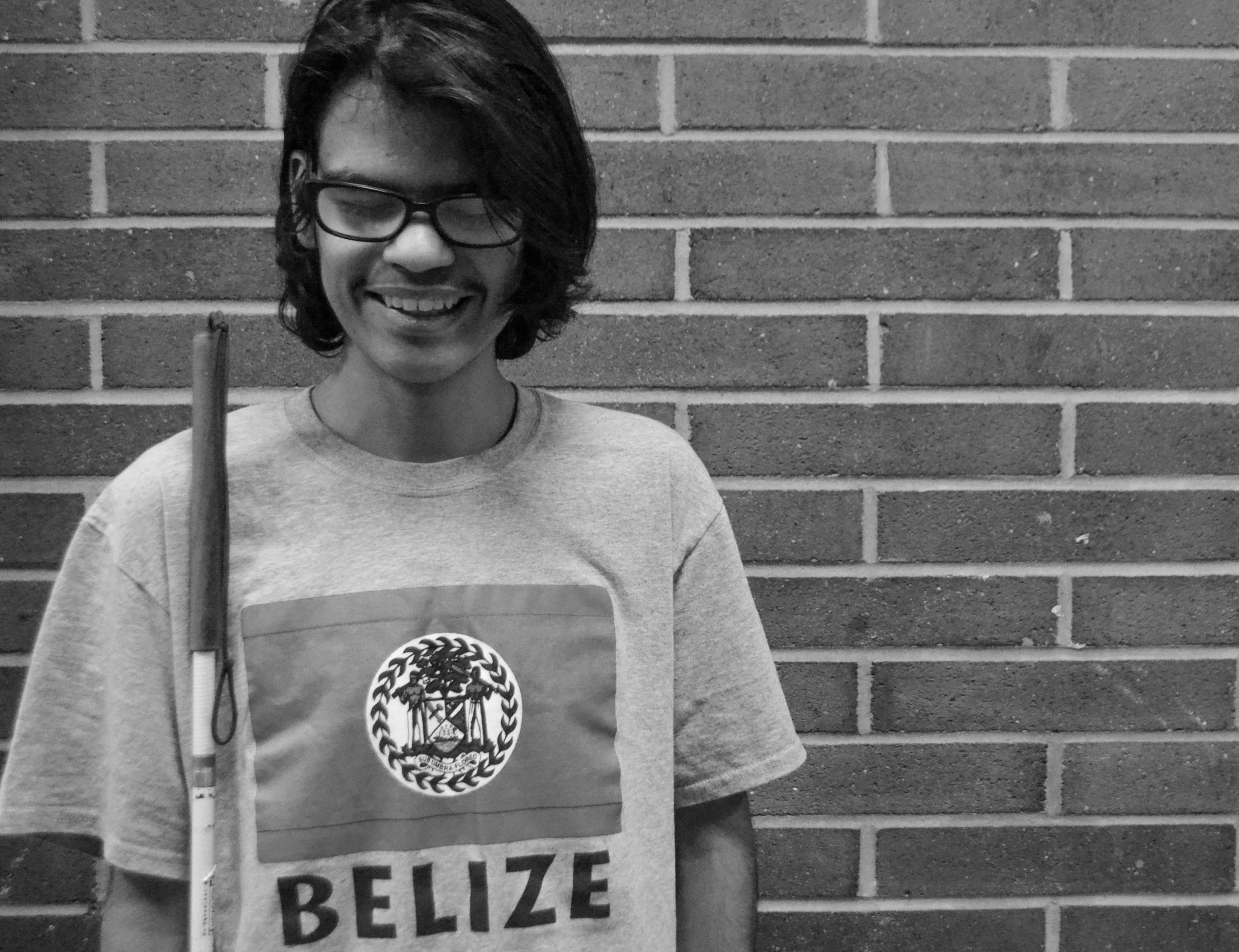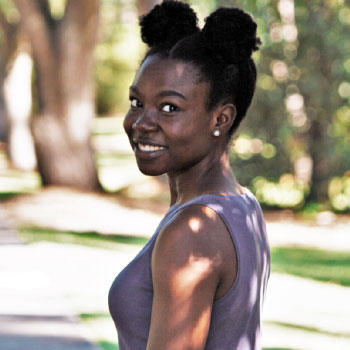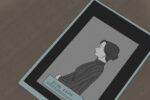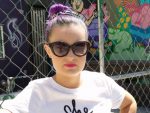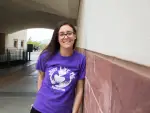At only nineteen-years-old, Rowan Garel, a sophomore at Drew University in Madison, New Jersey, has already climbed Victoria Peak, walked across a country and dived the Great Blue Hole, accomplishments that have made the blind Belizean an internationally recognized figure.
Garel began his efforts when he discovered that the Belize Council for the Visually Impaired (BCVI), a nonprofit organization critical for blind students in the country, was at risk of being defunded. In response, he set out to bring attention to the issue by taking on high-adventure treks as a means of fundraising. His efforts helped raise enough money for the BCVI to continue hosting their summer camps, which are vital for helping ensure that the visually impaired students are all able to attend school.
As a result of his work, Garel has been recognized by Taiwan’s Cho Ta-Kuan Foundation for his service and was made into the protagonist of a children’s book, “Climb, Walk, Dive: The Adventures of Rowan Garel,” the proceeds of which go to rehabilitation and education services for Belizeans who are blind or visually impaired.
I was able to speak with Garel about his challenges and accomplishments, as well as what he wants others to take from his story.
Joiya Reid: You’ve done a lot of traveling and visited a lot of remarkable places in your life. How do you register the memories of those trips?
Rowan Garel: That’s an interesting question: It’s a combination of sounds, things that I touched and things that stood out to me. I’ll give you a specific memory. When I remember my dad showing me a lizard for the first time, what I remember is the feeling of the animal and him telling me how to hold it properly and explaining what it looks like. So, the memory is his voice and the texture of the animal and his hands on mine, guiding them, making sure that I’m holding it so that I’m not bitten or hurting the creature.
JR: You’ve walked across Belize, dived the Great Blue Hole and climbed Victoria Peak, the second-tallest mountain in the country. Which of these adventures was the most memorable?
RG: In terms of actually being involved with nature, Victoria Peak stands out most to me because that’s the one in which I got to experience the most wildlife. Obviously the Blue Hole has tons of marine life, but you can’t hear fish. Don’t get me wrong, the water is an amazing place, but walking on those trails and up those hills, you hear all types of birds. There was even a species of toad that we saw—my dad told me about it—that I was really excited to encounter because it’s only found at high altitudes. The trip was more intimate.
JR: Why did you choose to climb Victoria Peak?
RG: My dad has been tour-guiding for a very long time, so he’s taken people, primarily student groups that would come down from either the U.S. or the U.K., all over the country. He would often take them to the Cockscomb Basin, where Victoria Peak is, and stay with them for a couple of days and take them on hikes. When he would come back, he used to tell me about all these amazing animals, sight and sounds that he would encounter, and that’s how we decided on the location. Not only was it a challenge, but it was something I got to share with my dad.
JR: “Climb, Walk, Dive: The Adventures of Rowan Garel,” which was published in June 2016, was written about you. What is the book about?
RG: I’m glad you asked that question, because people read the book and tell me that they’re really glad that I’ve done all thse things, or that I’m an amazing person for doing all these things. It’s a very nice compliment but, at the end of the day, I hope that the takeaway is not that I’ve done these things, but that anyone can do these things. That’s the purpose of the book: to show that blind or disabled people, on the whole, are capable of doing anything that sighted or people without disabilities are capable of doing, and maybe sometimes more. We’re on the same playing field.
JR: How did the idea to create the book come about?
RG: The Belize Council for the Visually Impaired (BCVI) is an organization that provides services for blind people, and the son of the executive director at the time had the idea for the book. He approached us and asked if he could get some people together to write and illustrate a children’s book about all the fundraisers that I’d done. We said sure because we wanted to ensure that there would be something going on, especially since I was set to come to Drew University that year.
JR: So if the book was a chronicling of your fundraising efforts, how did you get involved in raising money in the first place?
RG: As I said, my dad and I came up with the idea for the climb because my dad had hiked that particular mountain several times before, and it was something that sounded very interesting to me. Then, one day, he and I were sitting on the grass on my dad’s property in Belmopan, the capital of Belize, when he mentioned that the BCVI’s summer camp might not be able to happen because some major sponsors from the Caribbean had withdrawn.
The BCVI is a nonprofit, so they rely on donations from other places, but the purpose of the camp is critical. During the camp, counselors work to make sure that all the blind students are at the level we need to be at for the upcoming school year and that we have all our skills. If we’re behind in something, it’s an opportunity to refresh it; it’s the most important aspect of the rehabilitation program. When my dad told me that the camp might not happen that year, we started thinking about things to do. That’s when we thought about the climb. He said it should be something that shows that blind people can do anything so that, apart from the funds it raises, it also raises awareness.
JR: When you learned that you had received the Global Fervent Love of Lives Medal, which is awarded by Taiwan’s Chou Ta-Kuan Cultural and Educational Foundation, what was your initial reaction?
RG: Well, actually, at first we didn’t know that I was nominated for the award, so we were definitely caught off-guard. After finding out exactly what it stands for, I felt very honored. The Foundation uses the award to highlight a select group of yearly winners who are positive role models for their communities. There are so many great people who have won the award, and it was a privilege to be counted among them. It’s very humbling.
JR: You went to Taiwan to receive the award with your mom. What was your experience like there?
RG: It was great. While we were there, the recipients had to make several speeches and visit several places, including an elementary and a high school to share our stories. All the recipients had amazing stories, so it was very inspiring. Also, the people of the foundation made absolutely sure that we got to see exactly what made Taiwan, Taiwan. We got to eat at local restaurants and go to the night market, which was an amazing experience. I don’t think I would have ever visited Taiwan if it weren’t for the award, so I’m incredibly grateful for that.
JR: How did you end up at Drew University?
RG: We chose Drew primarily because it’s a small campus, which is nice because blind people don’t require that much. Teaching a blind person is no different than teaching a sighted one, but you do need a little bit more one-on-one time with the professor. Drew is a very small campus and the professors are extremely accommodating—we’re not just numbers; we all have names. Your professors really want to get to know you and ensure that you succeed, so that’s great for me.
JR: Your story sounds like you’re constantly overcoming improbable odds and pushing boundaries, but there have to have been some low points. Have you ever felt like quitting?
RG: I had my left eye removed when I was in my last year of primary school, and that was a horrible time for me. I’d been having pain in it for years and, eventually, nothing worked. The pain made everything really hard, which made me not want to do anything.
At one point, my mother came in asked if I needed anything to eat. She asked me, in Spanish, “Do you need anything?” and I said, “Yes, take it out.” At that point I’d been in pain for a long time, but my parents didn’t really want to have the eye removed unless they absolutely had to; no one wants to remove a part of their child. I guess, in some part of their brains, they were holding on to hope that maybe, one day, something could be done to at least give me some vision.
JR: How did you get back on your feet after that?
RG: My family has always been there for me, and my dad is a huge proponent of tough love. I remember after my surgery, he looked at me and said, “You don’t have a pupil. You look like an alien.” It’s that type of humor and making fun of people that’s his way of saying, “It’s okay, you’ll be fine.” Also, my teacher in that year of primary school would come to my house and help me catch up with all the work that I’d missed, which took a huge weight off my chest.
She’s always been patient and great, but it takes a special person to come to a student’s house and help them. I could tell that she wasn’t there for the money; she wasn’t there because she was expected to be. She genuinely wanted to help me. She would be there for as long as she needed to be and, although I’ve of course since graduated from primary school, she’s still a friend of mine. It’s people like that who you can tell really care about what they do.


